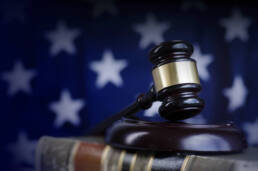A lawsuit has been filed in the D.C. District Court which challenges a final rule affecting the H-1B lottery process. This rule would give preference to H-1B applicants who make the highest salaries in their respective field. Those who filed the lawsuit, as well as those who support it, claim this rule is unfairly advantageous to the largest companies in the application process. DHS claims this rule will lead to the best and brightest workers receiving an H-1B, while disincentivizing the abuse of H-1Bs being used to fill lower-skilled, and lower paid positions. They explicitly state this as a “significant problem” under the present system.
How the H-1B Process Works
The H-1B is a visa classification that businesses use to sponsor workers in a specialty occupation. Although there have been some inconsistencies on what constitutes a specialty occupation, it generally requires a professional job for which a bachelor’s degree or higher is a prerequisite. There are only a limited number of H-1Bs that are issued each year for new applicants. Given that demand has historically far outweighed supply, the H-1B program is subject to a lottery system.
The Basis of the Lawsuit
The lawsuit is brought on behalf of a number of plaintiffs which allege several issues, including the way the rule was implemented, the result it has on businesses, and the authority of those involved in issuing the final rule.
The principal argument against this final rule is that using wages as a factor in prioritizing applications is an improper action by the DHS. The plaintiffs argue that DHS cannot consider any factor other than degree level without legislative action. Further, they take issue with how the DHS Secretary was appointed, and call into question his authority to issue a final rule. Ultimately, the goal of these arguments is to persuade a court that the DHS cannot implement this change, even if their reasons for doing so are valid.
The plaintiffs also allege that the basis for the change is not supported by facts, and adversely affects smaller businesses as well as nonprofits. The plaintiffs point out DHS does not provide any evidence to back its claim that considering wages will lead to “the best and brightest” applicants being issued H-1B visas. Additionally, they take issue with the DHS’s assertion that it will incentivize employers to pay more.
Specifically, the plaintiffs offer the argument that it will not incentivize employers to pay more, because some businesses cannot afford to do so. The Humane Society and Dentists for America are both parties to this lawsuit. They claim that as non-profits, they are tasked to do the most they can with limited resources. However, they do require workers to perform specialized occupations. Sometimes, to fill these needs they will need an H-1B worker. Under this new final rule, however, they simply will not have the capability to pay wages within the threshold that would get an approval. Their assertion ultimately states that not-for-profits, and businesses without the means to pay at levels of fortune 100 companies are essentially precluded from receiving H-1B approvals.
As of now, the lawsuit’s intended outcome is to have the rule officially rescinded. After President Biden took office, the DHS Secretary stated the rule would not be implemented until the end of 2021. The goal of this lawsuit is to look past the delay and have the rule officially rescinded by the DHS. In the case this happens wages could not be used to give priority in the H-1B selection process.
Ready to have Berardi on your side?
Whether you’re a business looking to hire or a professional hoping to relocate, immigration law can be complicated. But you don’t have to do it alone. Put our experience to work for you.



